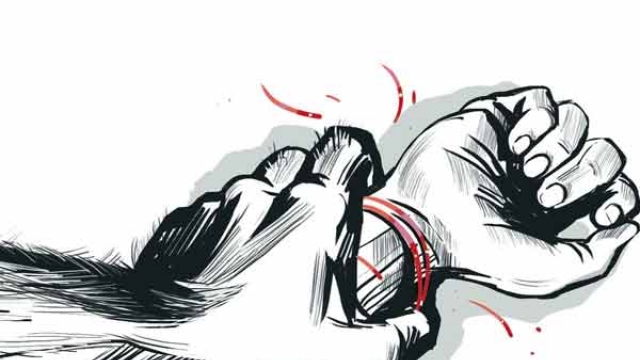This is a blog about rape. One that is in the news. And mine.
Two different rapes.
If you are following the story of Nate Parker, the African American man directing the movie “The Birth of a Nation,” you will know two things: there is a buzz about the black-themed movie making a mark in overly-white Hollywood; and there is a hum about the details of a rape case in his past for which he was acquitted.
This is not about the movie, which I plan to see, by the way, and which I hope is wildly successful. This is about the rape – or maybe the alleged rape.
The details are that Parker was accused in 2001 of raping a young woman when they were students together at Penn State. Parker was acquitted. The woman killed herself in 2012.
To this day, Parker maintains his innocence, but in a statement, he says he should have had more empathy for the young woman as he tried to clear his name. Empathy is always in short supply when women, alcohol, and rape mix. Even in the recent Stanford rape, which had witnesses pulling the rapist off the victim, the judge somehow was more worried about the damage to the rapist’s reputation than to the victim.
But rape does damage. Lasting damage.
The accuser in Parker’s case killed herself. Her sister, Sharon Loeffler, issued a statement, printed in Variety Magazine, saying, “I know what she would’ve said, and that would be, ‘I fought long and hard, it overcame me. All I can ask is any other victims to come forward, and not let this kind of tolerance to go on anymore…These guys sucked the soul and life out of her.”
Blaming the victim is not new. When I was in college, most rapists never saw themselves that way.
Best-selling author Laura Lippman discussed the issue on her Facebook page today, saying, “Last year, among a close group of friends, we were discussing with some bafflement why men we knew, guys we considered to be very evolved, were so vociferous in their defense of Bill Cosby. One participant in this conversation…said he had belonged to a fraternity at a large state university in the early 1980s and, by the standards of today, a large number of his fraternity brothers had committed rape, having sex with incapacitated women who could not provide consent. I was in college at the same time and, yes, I’m afraid that’s true. Pass out at a frat party? Unless you were a virgin wearing a chastity belt, whatever happened next was considered a presumptive risk on your part.”
I remember those days. I was raped in those days.
I worked in a music venue during college and it was common to befriend the members of the bands. One happened to live in my neighborhood and, after the post-concert party with coworkers, he offered to drive me home. Sounded good to me. And, giggly with alcohol, I helped him unload his instruments at his apartment before he was going to bring me to my place. And, sure, a goodnight kiss wasn’t out of the question.
Was the rape that followed my fault? I thought it was. I know I said no with force – I was on a break from the Pill and pregnancy was the worst consequence I could imagine – but how forceful was I, with alcohol making my limbs noodle-loose? Couldn’t he have mistaken my panic for being coy?
No. In hindsight, no.
But, then? I just didn’t know, and I knew my mother had raised me to never give ambiguous signals because boys would be boys: beasts who couldn’t control their libidos. As a female, I was supposed to be in charge of the morality. So, no rape report.
I had a strong family. I had friends. The bruises and tears healed. I had the resilience to eventually trust again, to get over the shame.
It was rape. I marvel now that I ever questioned that.
And my daughter? I raised her to be strong, to be unafraid to ask for what gives her pleasure, and to be equally unafraid to fight like hell to put the brakes on what does not give her pleasure.
As for Nate Parker, he says, “All of this said, I also know there are wounds that neither time nor words can heal. I have never run from this period in my life and I never ever will.”
I believe him, and I will see the movie. But I hope he goes beyond regret to teaching other young men about the lifelong implications of “boys being boys.”
